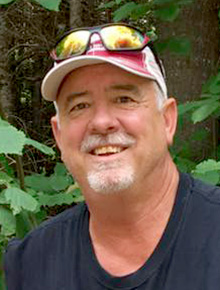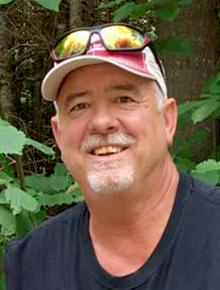
The firearms deer season is underway across Minnesota. Reports have been coming in with success rates far above last year. With literally almost no standing crop left in the state, there are far fewer places for deer to hide.
I guided a 62-year-old gal to her very first deer harvest. She comes from a family of die-hard deer hunters but just wasn’t up to the task of sitting in a tree stand in what would normally be freezing temperatures. I shared my heated box blind with her and she scored a solid hit on a 10-point buck 30 minutes after sunrise on opening day.
I had the occasion to run into the local conservation officer over the weekend and asked how his day was going.
He replied about the normal with nice deer harvested and a few violations as well. Several of those violations were for baiting.
Baiting deer in Minnesota is illegal. Baiting is the placement of anything considered food to a deer in order to entice them into gun range of the shooter.
Bait can come in many forms. Pumpkins, apples, corn and grains are all considered bait. Baiting is legal in other states. Minnesota does not see it that way. If you are caught hunting over a bait pile, the fine is $200. A conviction of baiting also comes with forfeiture of your gun or bow.
Add to that the restitution costs of any game taken can be over $1,000. The Conservation officer explained that the number of baiting violations is remaining steady.
It would be great if all hunters got the memo that baiting is illegal and not considered good sportsmanship and would just quit doing it. There will always be those few that want to take the easy way out.
With a few exceptions most of the deer attractants you can buy in a store would be considered bait. Buck Lickers is a common one purchased by hunters and is considered bait. About 95 percent of the products available in the store would be considered bait and illegal to use.
All of the product labels will state that the user needs to consult local laws to confirm whether they can be used in your state or not. Feeding deer is not in most places illegal.
There are places in the state where chronic wasting disease concerns make deer feeding illegal.
If you have used a product that is considered bait, you cannot hunt in that area until 10 days have passed after all the bait or its remnants are completely gone. After that time, you could hunt in that spot.
Other products that attract deer are not considered bait. For example, a salt block from the livestock section of the farm store is legal to use. Any other product that is a pure mineral is also not considered bait. One called Trophy Rock is a mineral and is not bait.
Grain spilled in the normal course of a harvest is not considered bait, but if the spill happens in the same general area over a period of years, the COs will be on to that and write a violation. Many a violator has tried the “it spilled by accident” line with little to no success.
Know the rules and follow them.
There are legions of ethical hunters whose reputations have been tainted by the small few people that call themselves hunters when a more accurate term would be poachers.
Driving game with motor vehicles, driving around with a loaded gun, not tagging your deer before you move it and trespassing are some other more common violations a CO will encounter during the deer season.
Any and all violations of game laws is a form of poaching. The taking of extra game by methods outside the regulations results in less game for the law-abiding hunter. Shooting outside the legal shooting hours is one I hear of more than I should.
Deer seasons continue for the next few weeks. Venison in the freezer is a nice bonus. Have a safe and successful deer season and meet the CO under friendly circumstances to get a deer hunting report and not the one that you end up signing the ticket for.
Scott Rall, Worthington, is a habitat conservationist, avid hunting and fishing enthusiast and is president of Nobles County Pheasants Forever. He can be reached at scottarall@gmail.com. or on Twitter @habitat champion.



